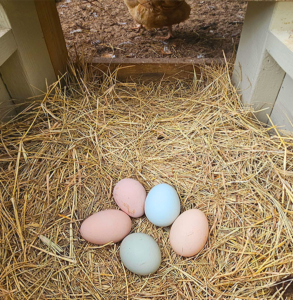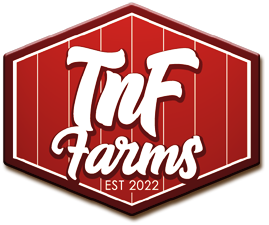
Rumors vs facts regarding poultry in the state of Florida
When we were getting TnF Farms off the ground, we asked as many people as we could about what to do to get started selling fresh farm eggs to eat, fertilized eggs and chickens. Most of the people we talked to gave good information but some of the stuff we heard sounded not quite right. President Ronald Regan made the phrase “trust but verify” famous back in the late 80’s.
Let’s cover the rumors that we heard when TnF Farms was just getting started with our flock.
To start off, this is information specific to Florida. If your farm or homestead is in a neighboring state, the rules can be different. Please do not assume this information completely applies in your state. We’ve had the folks out from the Florida Department of Agriculture out a few times. They’ve been out at our request and from other farms in the area informing them we needed a visit. TnF Farms has yet to be in violation.
Tim and I simply asked these professionals, if we made a fresh pot of coffee, if they had some time to sit down and do a little question and answer session and possibly educate us on any mistakes they commonly see with other homesteaders.
We’ve both worked with inspectors in our corporate jobs. Inspectors are great resources of knowledge. They know the codes up and down. Most of them are willing to educate people that are ready to listen. Educated (in this case) farmers, makes the inspectors’ jobs easier. Here are the highlights of 3 rumors that we discovered, are not true.
Rumor 1. Your farm has to be NPIP (National Poultry Improvement Plan) certified and AI (Avian Influenza) clean to sell fertilized eggs or live chickens.
No. Both of these programs are voluntary. Participating in these provides an added benefit for your fertilized egg or chicken buying customers. If you are looking to buy eggs to hatch or live chickens, it is to YOUR benefit to buy from a farm that participates in these healthier poultry programs. However, eggs or poultry going across state lines, NPIP/AI is needed.
TnF Farms recommends that you do not introduce new birds from many other farms to your flock. Try to keep your flock limited as few of sources as possible. In short, don’t acquire 1 chicken from 10 farms, get 10 chickens from 1 farm.
Rumor 2. Your farm has to be NPIP (National Poultry Improvement Plan) certified and AI (Avian Influenza) clean to sell farm fresh eggs or butchered chickens to eat.
No. Again NPIP and AI participation is voluntary for broader community health. You do need a limited egg and poultry license and a food establishment permit issued from the state of Florida.
The Florida limited egg and poultry license has a limit to laying hens and shell eggs. Your operation would have to be pretty large to hit the limits. The license also includes the sale of dressed poultry. If you are butchering your chickens to sell as meat, don’t cut them up into breasts, drumsticks, etc. This permit only allows you to legally sell dressed chickens whole.
The Florida food establishment permit covers proper sanitizing, storage and guidelines for selling eggs and poultry for consumption.
The purpose of these brief answers is not to cover all the nuance for selling eggs and chickens. Please visit the links to the Florida department of Agriculture to get every detail. They have easy to read downloadable PDF guides to make it easy to set up your operation.
Rumor 3. If you participate in the Premise ID program, and a significant outbreak occurs, in the vicinity of your property, the Department of Agriculture will come and euthanize your healthy livestock.
No. We asked multiple inspectors this question. They all gave a broad answer of no, they wouldn’t do that to a farm showing no signs of sickness. However, your flock and livestock may undergo quarantine.
The Florida Livestock Identification Premises Registration serves as a valuable resource for livestock owners in the state. The program notifies farmers and homesteaders of sicknesses occurring. It plays a crucial role in educating farmers, ranchers, and livestock owners about the importance of livestock identification and traceability for disease control and animal health management. They provide clear guidance on the registration process and related requirements. This resource contributes to the overall success and sustainability of Florida’s livestock while ensuring the welfare of the animals involved.


